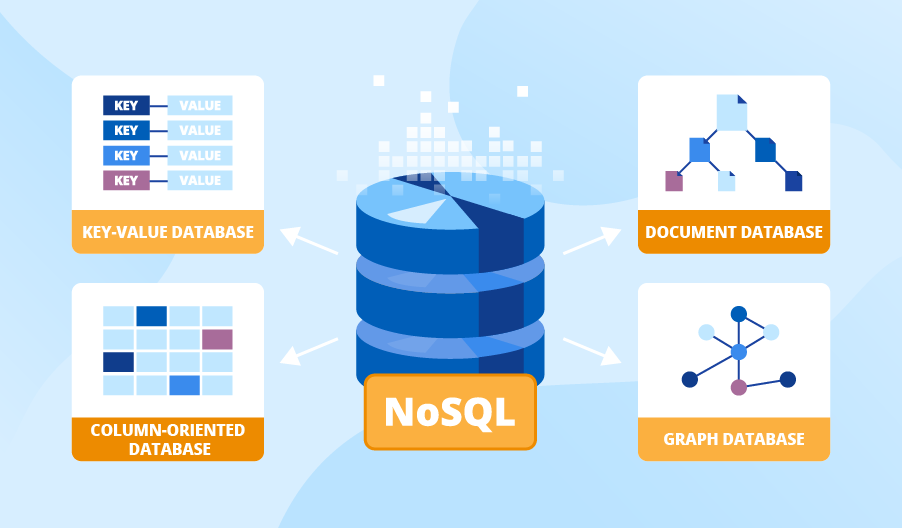Data Engineering: The Backbone of Modern Data-Driven Enterprises
Introduction to Data Engineering
In the age of information, data is often heralded as the new oil. However, like crude oil, data in its raw form is not particularly useful. It needs to be refined, organized, and structured to be valuable. This is where data engineering comes in. Data engineering involves creating and managing systems and infrastructure that enable data collection, storage, and analysis. It plays a crucial role in data science by ensuring data accessibility, reliability, and high quality.
The Role of Data Engineers
Data engineers are responsible for the backbone of the data pipeline. Their primary roles include:
1. Data Collection and Integration:
Gathering data from various sources, which may include databases, APIs, file systems, and external services. Integration ensures that data from different sources is combined in a way that is useful for analysis.
2. Data Storage Solutions:
Implementing and managing databases and data warehouses that store data efficiently and securely. They decide on the best storage solutions based on the type, volume, and usage of data.
3. Data Transformation:
Converting raw data into a format that can be easily analyzed. This includes cleaning the data, removing duplicates, handling missing values, and transforming data types.
4. Data Pipeline Management:
Building and maintaining data pipelines that automate the flow of data from source to destination. This includes scheduling jobs, monitoring performance, and ensuring data accuracy and consistency.
5. Optimization and Performance Tuning:
Ensuring that data systems are performing efficiently. This includes optimizing queries, managing resources, and scaling systems to handle large volumes of data.
Essential Technologies and Tools in Data Engineering
Data engineering encompasses a variety of tools and technologies that help in different stages of the data pipeline. Some of the key technologies include:
1. Databases:
SQL-based databases (e.g., MySQL, PostgreSQL) and NoSQL databases (e.g., MongoDB, Cassandra) are fundamental for storing structured and unstructured data.
2. Data Warehousing:
Solutions like Amazon Redshift, Google BigQuery, and Snowflake are used for large-scale data storage and analytics.
3. ETL Tools:
Extract, Transform, Load (ETL) tools like Apache Nifi, Talend, and Informatica automate the process of moving and transforming data.
4. Big Data Technologies:
Frameworks like Apache Hadoop and Apache Spark allow for the processing of large datasets across distributed computing environments.
5. Data Streaming:
Tools like Apache Kafka and Apache Flink enable real-time data processing and streaming analytics.
Challenges in Data Engineering
Data engineering is not without its challenges. Some common issues faced by data engineers include:
1. Data Quality:
Ensuring that data is accurate, complete, and reliable is a constant challenge. Low-quality data can result in inaccurate conclusions and flawed decision-making processes.
2. Scalability:
As the volume of data grows, systems must be able to scale efficiently. This often requires significant architectural changes and resource management.
3. Integration Complexity:
Integrating data from multiple sources, each with different formats and structures, can be complex and time-consuming.
4. Security and Compliance:
Protecting data from unauthorized access and ensuring compliance with regulations (e.g., GDPR, HIPAA) is critical.
The Future of Data Engineering
The future of data engineering looks promising with several trends shaping the industry:
1. Automation and AI:
Increasing use of automation and AI to manage and optimize data pipelines, reducing the need for manual intervention.
2. DataOps:
Adoption of DataOps practices to improve collaboration between data engineers, data scientists, and other stakeholders, leading to more efficient and reliable data pipelines.
3. Real-time Analytics:
Growing demand for real-time data processing and analytics, driven by the need for immediate insights and decision-making.
4. Cloud-Native Solutions:
Shift towards cloud-native data engineering solutions that offer scalability, flexibility, and cost-effectiveness.
Conclusion
Data engineering is a critical field that enables organizations to harness the power of data. By building robust data pipelines, ensuring data quality, and leveraging the latest technologies, data engineers play a vital role in driving data-driven decision-making. As the volume and complexity of data continue to grow, the demand for skilled data engineers is set to rise, making it a promising career path with numerous opportunities.
FAQs
Q1: What skills are required to become a data engineer?
A: Key skills include proficiency in programming languages (e.g., Python, Java), knowledge of databases and SQL, experience with data warehousing solutions, understanding of ETL processes, and familiarity with big data technologies.
Q2: How does data engineering differ from data science?
A: Data engineering focuses on building and maintaining the infrastructure for data collection, storage, and processing, while data science involves analyzing data to extract insights and build predictive models.
Q3: What is the role of ETL in data engineering?
A: ETL (Extract, Transform, Load) processes are crucial for moving data from various sources to a central data warehouse or database, transforming it into a usable format along the way.
Q4: Why is data quality important in data engineering?
A: High data quality ensures that the insights derived from data are accurate and reliable. Poor data quality can lead to incorrect conclusions and flawed decision-making.
Q5: What are some popular data engineering tools?
A: Some popular tools include Apache Spark, Apache Kafka, Hadoop, Talend, Informatica, Amazon Redshift, Google BigQuery, and Snowflake.








